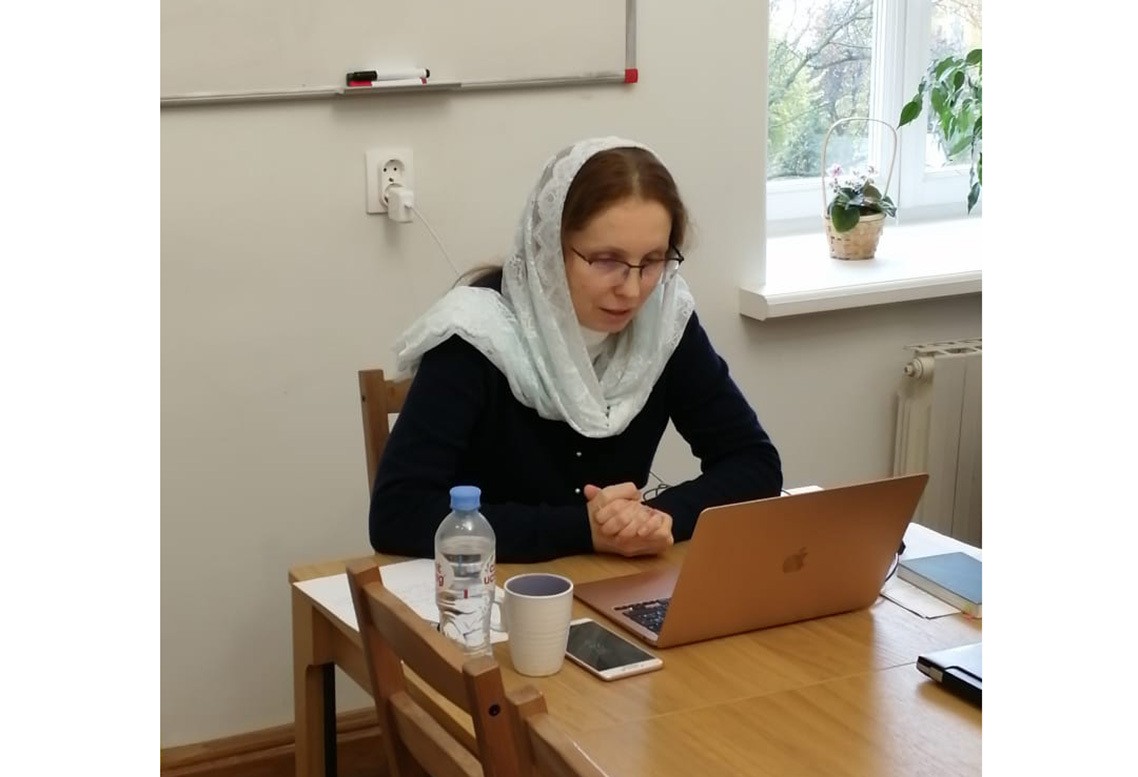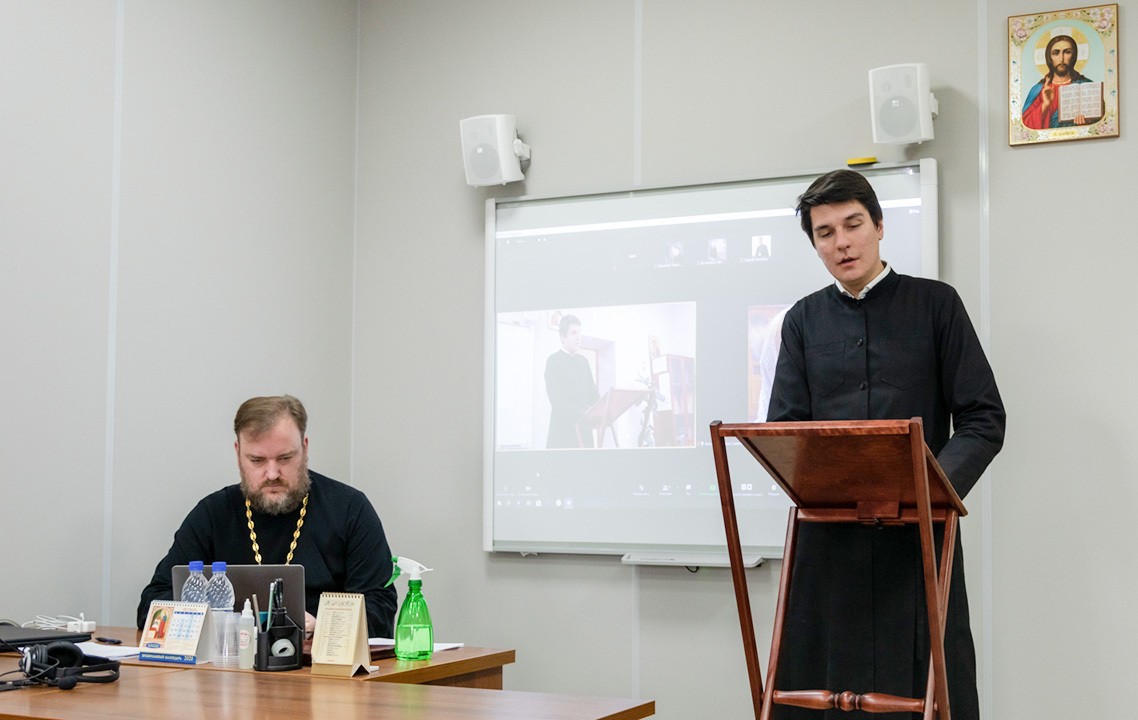
Teachers and graduate students of the Department of Church Practical Disciplines took part in a scientific conference in Kazan
On November 2, the Kazan Orthodox Theological Seminary hosted the 19th annual scientific and theological conference "Theology and Science: Traditional and New Relationships". Archpriest Alexander Zadornov, Acting Head of the Church Practical Disciplines Department at the Moscow Theological Academy, moderated a session on church law.

In his report on church-state relations and the problem of non-state forms of social self-organization, Archpriest Alexander Zadornov highlighted the necessity for expanding some positions of chapter three from the Social Concept Fundamentals, which regard the state as a necessary element of life in a world tainted by sin. The history knows some examples of systematic non-state forms of social self-organization that still exist today. The most studied is the "Zomia phenomenon" which is a vast expanse of highlands in the Southeast Asia including parts of Laos, Cambodia, Thailand, Shan province in Burma, four southwestern Chinese provinces as well as the Northeastern India and the highlands of Afghanistan.
Native people has successfully evaded any forms of state power for years. All of these territories are parts of the Chinese Autonomous Orthodox Church and the Patriarchal Exarchate of Southeast Asia with its center in Singapore. So, they form a canonical territory of the Moscow Patriarchate.
Two reports touched upon the Church-state interaction in order to prevent coronavirus pandemic. N.S. Semyonova, Associate Professor of the Church Practical Disciplines Department at the Moscow Theological Academy, gave a report on "A church visiting interdiction during a pandemic: discrimination against Christians or lawful establishment?” The researcher recalled that when in March 2020 the World Health Organization announced the start of the COVID-19 pandemic, states took preventive measures, which seriously restricted rights and freedom of citizens including visiting Orthodox churches. The report analyzed the legality of those actions with an example of the Russian Federation and the Russian Orthodox Church.

Nikita Kuznetsov, Postgraduate student of the Moscow Theological Academy and a secretary of the Academic Council at the Kazan Orthodox Theological Seminary, gave a report on the “Render therefore to Caesar the things that are Caesaŕs, and to God the things that are God́s” (Matt. 22:21). The Competence of Church and State Authorities during a Pandemic”. He developed theoretical foundations of preventive measures with a regard on religious organizations.

Andrei Zotin’s report on "Deaconesses and a parish life of a metropolis" aroused a lively discussion. As the speaker noted, a priest in a metropolis, in addition to liturgical life, is overloaded with other administrative and church affairs. In this situation, it is reasonable to recall a long gone into oblivion deaconess degree. The speaker touched appropriateness and functional duties of ancient clergymen in connection with facilitation a life of a contemporary priest in a metropolis.

Sergei Pimenov, postgraduate student of the Moscow Theological Academy, made an overview of the church-legislative acts of the Russian Orthodox Church in a period from 1945 to 1990. AS the speaker noted, the system of current canon law in the Russian Orthodox Church is rather complicated due to the significant number of adopted norms over the centuries.
All materials will be published in a scientific journal of the Kazan Theological Seminary "Orthodox Interlocutor".
MThA Press Office
